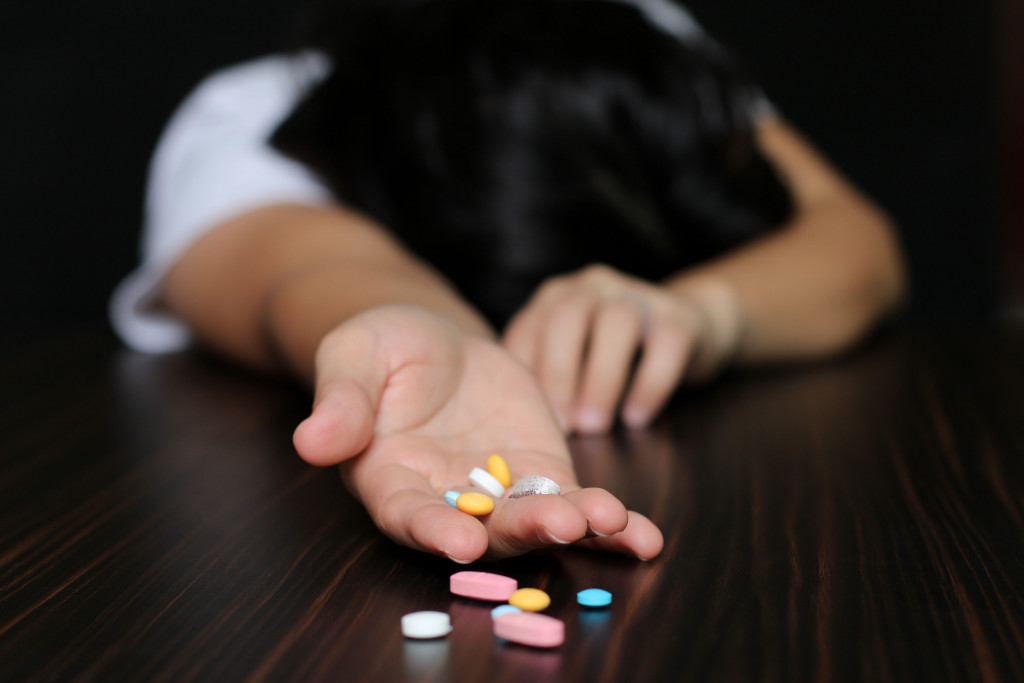- Long-term substance abuse can result in organ damage, cancer risk, cognitive impairment, mood disturbances, and even death.
- To reduce the risks of addiction, setting limits for yourself and monitoring your drinking patterns is essential.
- Quitting smoking or using other tobacco products can be difficult without professional help, but resources are available to help you succeed.
- Taking prescription drugs without doctor supervision is dangerous as it increases the risk of overdose or developing a substance use disorder.
Substance abuse is a serious problem affecting millions worldwide and can have potentially devastating consequences. Awareness of which substances are hazardous and prone to abuse is essential to protecting yourself and those around you against substance abuse.
Substance abuse can have a wide range of negative physical and psychological impacts. Short-term effects include impaired judgment, memory loss, reduced motor skills, nausea and vomiting, increased risk of injuries, respiratory depression, and coma. Long-term effects may include organ damage, increased risk for certain types of cancer, decreased cognitive abilities, severe mood swings or depression, addiction or dependence on the substance used, and even death from overdose or long-term use.
It will be necessary to stay away from substances that can be harmful to your health, but awareness is vital to help you recognize when a substance may be hazardous. Here are some of the most commonly abused substances that you should be aware of:
Alcohol
Alcohol addiction is a severe condition that can have long-term detrimental physical, psychological, and social effects. People addicted to alcohol may experience liver damage, including cirrhosis, pancreatitis, and gastrointestinal problems. They also risk developing mental health disorders such as depression or anxiety, as well as cognitive impairments due to structural changes caused by heavy drinking.
Alcohol abuse puts people at an increased risk of developing cancer and leads to family and relationship problems due to the impact of the addiction on their behaviors. Furthermore, alcoholics often develop a physical dependence on the substance, making quitting difficult without professional help. This highlights why it is essential for those struggling with addiction to seek treatment early to reduce their risks of experiencing further harm from their substance abuse.
Fortunately, there are many ways to reduce the risks of developing an alcohol addiction, such as setting limits for yourself, avoiding high-risk drinking environments, and monitoring your drinking patterns.
Tobacco

Tobacco use is linked to various health complications, such as lung cancer, heart disease, stroke, and COPD. Tobacco use can also lead to premature death due to its effect on the cardiovascular system. Additionally, the nicotine from tobacco products can be addictive and cause withdrawal symptoms when quitting smoking or using other tobacco products.
If you are currently using tobacco products or know someone trying to quit, many resources are available to help them succeed. Support groups and programs like Nicotine Anonymous are excellent ways to get started on quitting and recovering from addiction.
Prescription Drugs
When taken inappropriately or without doctor supervision, prescription drugs can be highly addictive and lead to devastating consequences. These drugs are commonly abused to achieve euphoria or relaxation, with some of the most common being opioids, benzodiazepines, and stimulants such as Adderall or Ritalin.
Abusing these medications increases the risk of overdose and the chance of developing substance use disorders. It is also important to remember that many prescription drugs have dangerous interactions when combined with alcohol or other substances, further increasing the potential risks associated with their abuse. Therefore, it is essential for those taking any prescription drug to be aware of its effects and follow their physician regarding dosage and safety measures.
Of course, addiction to prescribed substances might be challenging to change because you need to get them for medical purposes. Opiate, for example, is a prescription medication used to manage pain in many cases, and it is the most commonly prescribed drug for this purpose. It can be difficult to quit because of its effects on the body’s pleasure system and dependency; however, professional help is available for opiate detox services, allowing you to safely and effectively quit your opiate use.
Illegal Drugs

Illegal drugs carry a wide range of risks due to their unregulated production, sale, and usage. Here are a few illegal drugs that might be of concern:
Marijuana
Marijuana affects motor coordination and cognitive abilities, often leading to impaired judgment and decision-making. It can also lead to respiratory problems such as bronchitis and increased risks for certain types of cancer.
Cocaine
Cocaine is an addictive stimulant that increases alertness, energy, and heart rate. Regular use can permanently damage the cardiovascular system, causing organ failure, lung damage, insomnia, anxiety and depression, stroke or seizure, and in extreme cases, death due to overdose.
Heroin
Heroin is a highly addictive depressant that slows down bodily functions like breathing and heart rate. Abuse of this drug can cause severe health issues, including kidney disease, liver disease, weakened immune system, and in extreme cases, death due to overdose.
Methamphetamines
Methamphetamines are highly addictive stimulants that can cause cognitive impairment, liver damage, mood disturbances, and death due to overdose in extreme cases.
Final Thoughts
Knowledge of these substances is essential to help avoid being put in potentially dangerous situations associated with their use. By taking steps to stay away from these substances, you can stay safe and protect yourself and those around you from the risks of substance abuse. If someone you know is struggling with addiction, it’s essential to seek professional help immediately.






